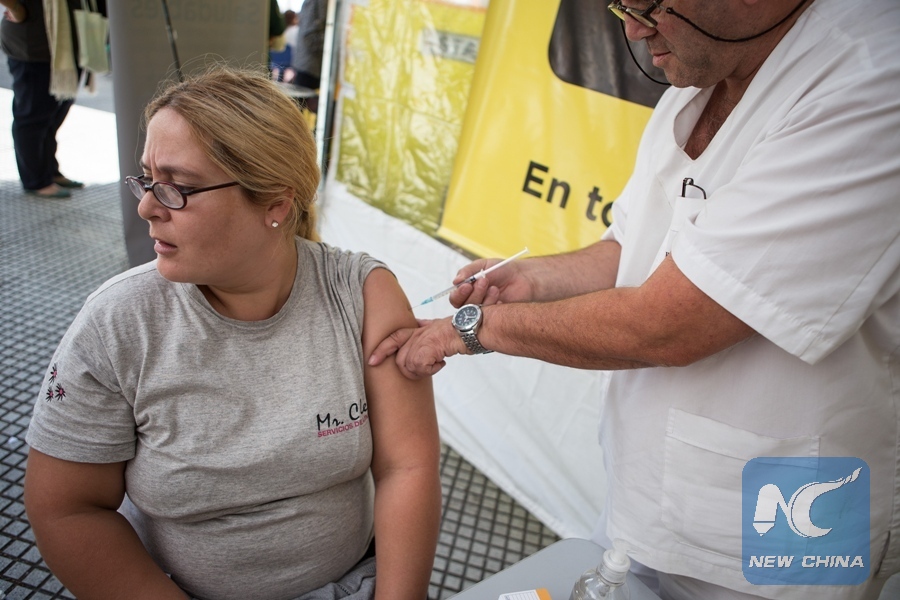
A woman receives a vaccine for Hepatitis B at a stand during a fair for basic services in prevention of disease in the context of the World Health Day's commemoration, in Buenos Aires, Argentina, on April 7, 2015. (Xinhua/Martin Zabala)
UNITED NATIONS, April 21 (Xinhua) -- A vast majority of the estimated 325 million people living with chronic hepatitis B virus or hepatitis C virus infection lack access to life-saving testing and treatment, according to the new data published Friday by the UN World Health Organization (WHO).
UN health agency said hepatitis virus infection placed them at a great risk of chronic liver disease, cancer, and even death.
According to WHO's 2017 Global Hepatitis Report, just 9 percent of all hepatitis B virus (HBV) and hepatitis C virus (HCV) infections were diagnosed in 2015. An even smaller fraction, merely 8 percent and 7 percent, of those diagnosed with HBV and HCV, respectively, started curative treatment during that year.
"Viral hepatitis is now recognized as a major public health challenge that requires an urgent response," said Margaret Chan, the Director-General of WHO, in a news release announcing the findings.
The report also revealed that increased coverage of HBV vaccinations among children have contributed substantially to preventing deaths from that virus.
Globally, 84 percent of children born in 2015 received the three recommended doses of HBV vaccine.
However, an estimated 257 million people, mostly adults born before the introduction of the HBV vaccine, were living with chronic HBV infection in 2015. There is also currently no vaccine against HCV, and access to treatment for both HBV and HCV is low.
HBV infection requires lifelong treatment, and Hepatitis C can be cured within a relatively short time using the correct medicines, making the need for testing and treatment all the more important.
"We are still at an early stage of the viral hepatitis response, but the way forward looks promising," said Gottfried Hirnschall, Director of WHO's Department of HIV and the Global Hepatitis Programme, adding that "more countries are making hepatitis services available for people in need, a diagnostic test costs less than 1 dollar and the cure for HCV can be below 200 dollars ."

